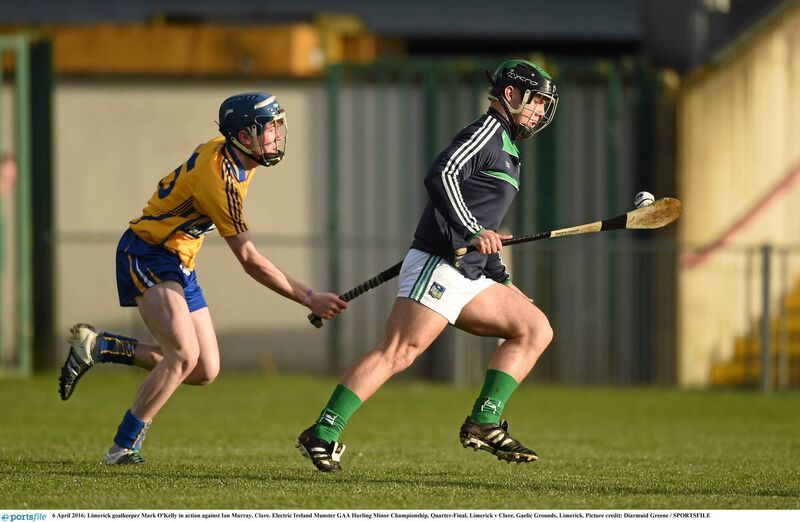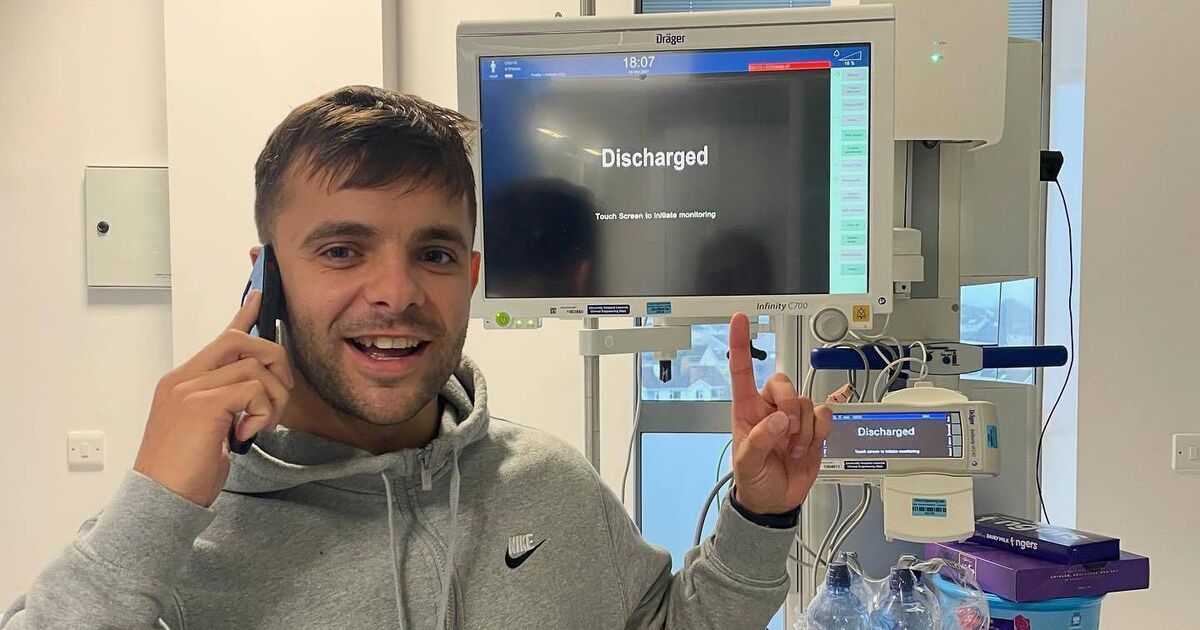Lining out for your local club is a privilege for many, but for Mark O’Kelly, it was almost the final thing he did on this earth.
On September 24, 2023, with the clock ticking towards full-time, Croom’s O’Kelly hit the surface at Granagh Ballingarrry’s ground in West Limerick following a collision. It was round five of Limerick’s Intermediate Hurling Championship, with Feohanagh Castlemahon the opposition.
An unexpected, virtually unseen and unheard-of type of cardiac arrest left the then 25-year-old in peril and against the clock. Thankfully, through the quick actions of teammates, opposition and spectators O’Kelly was saved.
A full-recovery has followed and the former minor hurling keeper with the Treaty is now looking to give back, through fundraising to help others – as well as highlight the need for CPR training and AED knowledge to become more commonplace.
“It’s called commotio cordis. It is a sudden impact to the chest. A blow to the chest lands at the exact moment in the heart’s electrical cycle, and it is 20-40 milliseconds, that disrupts the rhythm and causes a cardiac arrest. It is a 4,000,000/1 chances of it happening. It could happen to anybody, I was perfectly healthy going into it and perfectly healthy after it.”
 Limerick goalkeeper Mark O’Kelly in action against Ian Murray, Clare in the 2016 Munster MHC. Picture: Diarmuid Greene / SPORTSFILE
Limerick goalkeeper Mark O’Kelly in action against Ian Murray, Clare in the 2016 Munster MHC. Picture: Diarmuid Greene / SPORTSFILE
Quick research into this type of cardiac arrest shows many who suffered the commotio cordis did so after being struck by a baseball, hockey puck or lacrosse ball hitting the side of the chest. Immediate CPR is the best route to survival. The probability of arrest happening, as outlined by O’Kelly, is unlikely, but so too is survival.
“It is hard, contact sports where it happens. There were 23 people who suffered this globally in 2023, and 19 of them didn’t make it.”
Two former Limerick players, as well as one of the current crop, were lining out and their professional skills were to the fore.
“Stephen Lucey who is a doctor, Conor Allis who is a radiologist (both Croom teammates) and Seamus Flanagan (qualified radiologist and Feohanagh player) were on the pitch, as well as four or five nurses who were at the game. There were others who were trained in CPR present on the day too,” explained O’Kelly who works as a CNC Operator with Croom Medical.
“Funnily enough the defibrillator was checked on the Wednesday before the game and the batteries were gone. Luckily, they checked it and they changed it, they might have changed the pads too. It shows the importance of CPR and people being able to use an AED.”
Rushed to hospital before coming around, the first question he had was whether Croom had taken the victory – the result stood and a victory for the Maiguesiders was of some consolation.
“I was about two weeks in hospital, which included trips up and down to Dublin. I had scans, echocardiogram and angiograms. Once I got out of hospital, I couldn’t go back to work, I couldn’t play any sport, I couldn’t even play golf. I was told to sit at home and wait until all the results came back – thankfully it all came back quite well.
“Usually, when CPR is done on you – you could break your chest bone, you could break ribs or you puncture something. It shows the value of time in the gym. It shows the value of that, the muscle that I had build up, everything was ok. When you have someone like Stephen Lucey bouncing up and down on top of your chest trying to revive me, but I got away lucky!”
Naturally a competitor and eager to win, it has changed his view on who this can happen to.
“My outlook hasn’t changed a lot. However, I would have thought ‘this won’t happen to me’, nobody ever expects that to happen when going out on the hurling field.”
A return to the playing fields was much welcome, and while he was eager to just get on with it, those around him were conscious of avoiding a most unlikely repeat.
“I remember that first match after coming back, my godfather was over us the year after it happened. I had been playing wing-back but he put me into goals, he didn’t want the same thing to happen.
“Also in the same game, against Crecora, my cousin was actually playing centre-forward for them, so I was put out centre-back to mark him, as he wouldn’t do anything to me!”
Over €3,000 has been raised in just over a week. This, as well as awareness, are key objectives. The organisation is also well underway for a 5km Fun Run on October 4. This will start and finish at the Croom GAA Grounds, just off the N20.
“With the fundraiser, the main point I am trying to highlight is that this could happen to anybody, at any time. It is vitally important that people know how to do CPR and use an AED.
“My four brothers, my parents, and our partners are trying to raise as much awareness for the Irish Heart Foundation. It is to raise further awareness of what happens but also to highlight the great work they offer for people who’ve had issues with their heart after that event. The Irish Heart Foundation give money towards their recovery – both mentally and physically.”
The 27-year-old hopes people can donate to the worthy cause. Simply search 5km Fun Run & Walk in Aid of the Irish Heart Foundation to visit the Eventmaster page.

